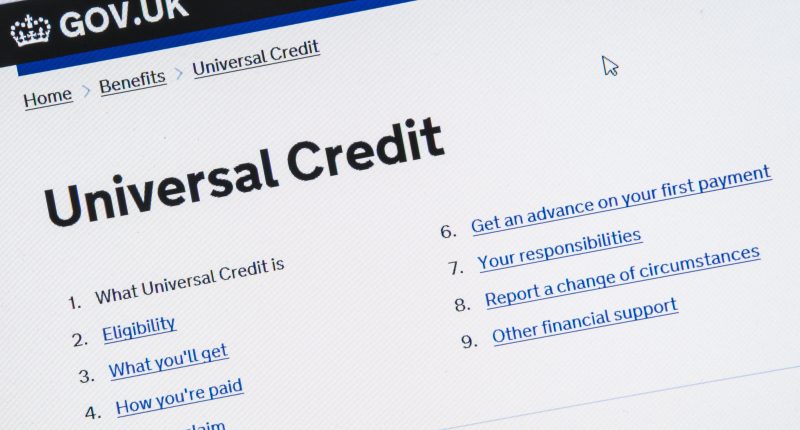THE short month of February is a blessing for hard-up households as it usually means that benefit payments don’t need to stretch as far.
But 2024 is a leap year meaning there’s an extra day this month – February 29.
With this in mind you might be wondering how this will affect your Universal Credit payments?
Here’s everything you need to know.
Does it mean that I’ll get less money?
The Universal Credit standard monthly allowance stays the same every month, regardless of how many days there are.
These are currently set at £292.11 for single people under 25 or £368.74 for those 25 and over.
Read more in money
If you’re in a couple and both under 25, you’ll get £458.51, while couples where one or both partners are 25-years-old are entitled to £578.82.
You may also get extra amounts if you have children, a disability or get help with housing costs.
February is always a shorter month than most, typically with 28 days, meaning that you won’t have to make your payments last so long.
For example, someone who gets £500 a month in total will be able to budget £16.13 a day in January when there are 31 days, but in February they can budget £17.85 a day.
Most read in Money
As there are 29 days in February 2024, you’ll need to make your payments stretch further than you would normally need to in the shortest month of the year.
This works out at £17.24 a day for a £500 monthly payment.
The amount that you’re paid for other elements, such as housing, child and income support, will also be the same.
It also means that there will be one less day in the assessment period but it will not affect March’s payment either.
What if I’m normally paid on 30 or 31 of the month?
If you’re benefits are normally paid into your bank account on 30 or 31 of the month then you’re going to get it earlier than usual this February.
You’ll be paid on the last working day of the month, which is Thursday, February 29, instead.
And as usual, if your payment date falls on a weekend, it will be sent to your account on the working day before.
What does the extra day in the year mean in the long term?
Thousands of claimants who receive the housing element of Universal Credit could miss out on a week’s worth of rent this year.
The administrative loophole has previously affected those who pay their rent at the start of every week.
This is because monthly Universal Credit payments are worked out based on 52 weeks in the year – but this year there will be 53 Mondays.
Despite this, claimants will still receive the same amount as if there were only 52 Mondays, leaving the most vulnerable at risk of falling into rent arrears at the end of the year.
However, during the last leap year in 2020, the Department for Work and Pensions downplayed these concerns and said: “Having 53 rent days does not mean paying more rent over a year as most of the final payment will cover the first week’s rent for the following year.”
We’ve asked them to confirm if this is still the case this year.
Are Universal Credit payments rising in April?
Benefit payments will rise by 6.7% from April, in line with the consumer price index (CPI) level of inflation for September 2023.
Here’s how much your Universal Credit payments will rise by:
Standard allowance (per month)
- For those single and aged under 25, the standard allowance will rise from £292.11 to £311.68
- For those single and aged 25 or over, the standard allowance will rise from £368.74 to £393.45
- For joint claimants both under 25, the standard allowance will rise from £458.51 to £489.23
- For joint claimants where one or both are 25 or over, the standard allowance will rise from £578.82 to £617.6
Extra amounts for children
- For those with a first child born before April 6, 2017, the extra amount will go up from £315 to £333.33
- For those with a child born on or after April 6, 2017 or second child and subsequent child, the extra amount will go up from £269.58 to £287.92
- For those with a disabled child, the lower rate addition payment will rise from £146.31 to £156.11 and the higher rate from £456.89 to £487.58
Extra amounts for limited capability for work
- For those deemed to have limited capability for work (LCW), the lower rate amount will go up from £146.31 to £156.11
- The higher rate for LCW will go up from £456.89 to £487.58
- For those deemed to have limited capability for work or work-related activity, the extra amount will go up from £390.06 to £416.19
Extra amounts for being a carer
Universal Credit claimants can get an additional amount if caring for a severely disabled person for at least 35 hours a week.
The amount you get a month will rise from £185.86 to £198.31
The work allowance rates will also rise in April next year.
Extra amounts for childcare
- The maximum rate for one child will increase from £950.92 to £1014.63
- The maximum amount for two or more children will rise from £1,630.15 to £1,739.37
READ MORE SUN STORIES
Increased work allowance
- The higher work allowance (no housing amount) for someone claiming Universal Credit with one or more dependent children or limited capability for work will rise from £631 to £673
- The lower work allowance for someone claiming Universal Credit with one or more dependent children or limited capability for work will rise from £379 to £404









